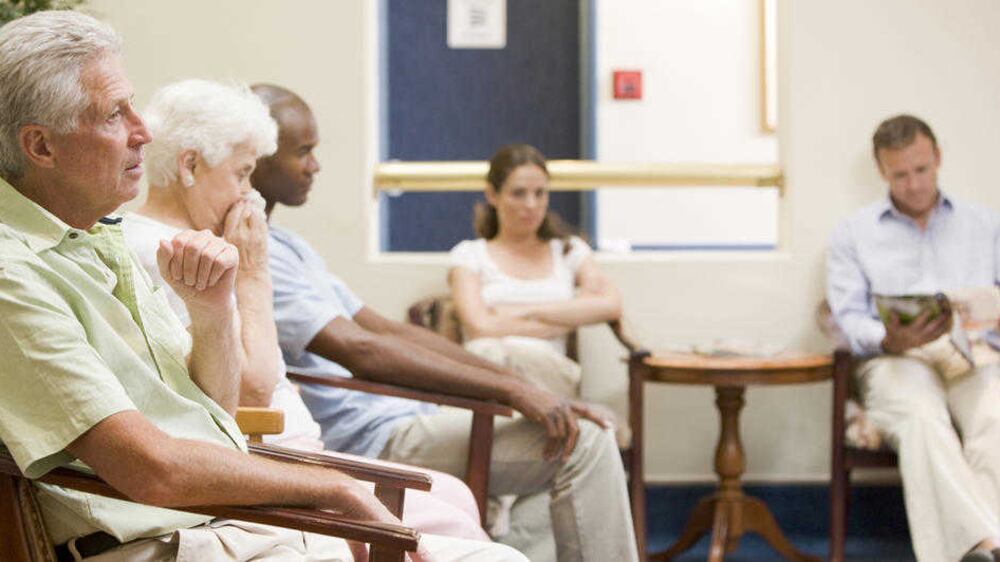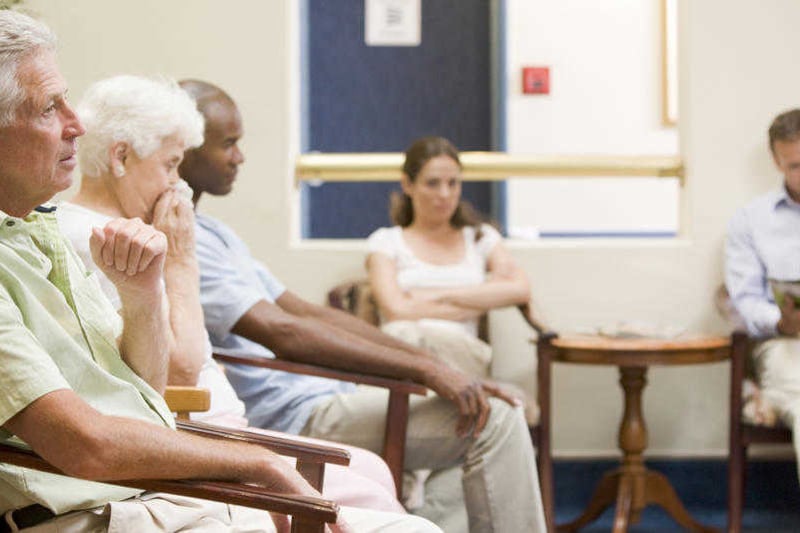THE demand for appointments to see Northern Ireland’s 900-plus GPs has never been higher – but never has the waiting list been longer to get a routine appointment.
With waits of up to two or three weeks before patients see their doctor, the answer to handling the crippling demand may lie in a computer algorithm. Just as Google’s top-secret algorithms revolutionised search engines on the internet, the algorithm behind the askmyGP system may change forever how patients here interact with their GPs.
Using a combination of phone consultations and a computerised question-and-answer session, several GP practices in west and east Belfast and Derry have introduced askmyGP as a pilot scheme backed by the Health and Social Care Board.
The aim of the new system to is effectively triage the patient’s need for treatment to ensure that those patients who need to see a GP that day are seen and those who may need to see a nurse or get a prescription are also efficiently dealt with.
Simply explained, when a patient rings the practice they tell the receptionist what is wrong with them and the GP calls them back, offering an appointment that day or the next if there’s a need, or arranging a nurse appointment or prescription.
The more tech-savvy patients have the option of using askmyGP from their smart phones, notebooks or computers and going through a computerised survey where they answer questions and the results are submitted to the doctor.
The result is the same in both cases – depending on the information that the GP gets, he or she can arrange to see the patient on the same day.
Dr Tom Black is chairman of the Northern Ireland General Practitioners Committee and has introduced the system to his Abbey Medical Practice in Derry in recent weeks. Other practices to run the pilot scheme are that of Dr Michael McKenna, who has a busy practice on Belfast's Falls Road, and another practice in the Holywood Arches medical centre in the east of the city.
Dr Black said: “With 13 million consultations in Northern Ireland, we simply cannot meet that demand with the number of GPs that we have.
“More than half of GPs in Northern Ireland work online from home at night to catch up with prescriptions. The opportunity for us to pilot this out came when I was made aware of this in England and how well it’s worked over here so when I put it to the Health and Social Care Board they were keen to explore it as it promotes remote working.”
Dr Black and his colleagues involved in the pilot arrive into work every morning with no appointments booked in order to treat patients as the need arises.
He added: “It takes about four weeks to clear up the waiting list so you can start afresh and that last week of appointments is tough. So since we introduced it on May 6, we deal with everything on the day.”
Dr McKenna says that so far the reaction to the new system from staff and patients has been very encouraging.
His practice has 2,700 patients and within two week of introducing the phone and algorithm system, he says that 70 per cent of the patients said it was better with 20 per cent saying it was the same.
“AskmyGP appeals to the more tech-savvy group of patients who will initially use it the most but as time goes on we would hope that it would grow. It doesn’t change the patient demand, it just allows the practice deal with it in a more controlled way. It’s a bit like what one of my colleagues described it, that 'you do today’s work today'. There’s no waiting time for the patient.
“If you need to be seen, I can say to the patient to come down today at a certain time. The reaction we get from patients is often ‘What do you mean come down today?’ They can be surprised at that.
“My average time to ring back a patient is about 12 minutes. It’s been found in the UK that using the algorithm means that GPs get more information about the patient’s ailment than the traditional eight-to-10-minute face-to-face consultation.”
Dr McKenna's practice has found that the number of missed appointments has reduced dramatically too.
Both doctors agree that most of the patients who want an appointment do not need to be seen but they realise that this system would not suit a small number of patients who are used to the more traditional way.
Dr Black added: “I think it’s inevitable that we will see more practices introducing this pilot after the Board reviews it and sees if it is effective – and the answer will be yes.”



